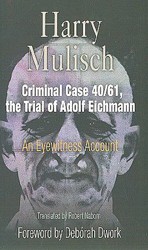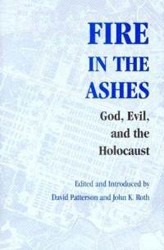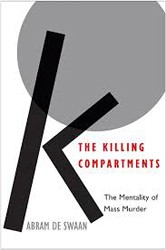The Nazi architecture of persecution and annihilation of the Jews included the creation of prisoner hierarchies that forced victims to cooperate with their persecutors and even participate in their own destruction. This has remained a controversial, highly charged, and often taboo aspect of the Holocaust experience. Adam Brown focuses on the important category of so-called “privileged” Jews in this highly suggestive and fascinating book. The term “privileged” is used to refer to the Sonderkommando, the special squads forced to work in the gas chambers and crematoria, to the camp inmates who held positions as prisoner-functionaries such as the Kapos, and to the members of the Judenräte (Jewish councils) and the Jewish police. The ethical dilemmas encountered by this group of victims have proven very challenging for Holocaust survivors, scholars, and artists to understand and represent. The core issue seems to be that in order to prolong their lives, the “privileged” Jews behaved in ways that have often been interpreted as contributing in some way to the killing process.
In order to develop a deeper understanding of the Holocaust and its ethical implications, Brown’s approach is greatly informed by Primo Levi’s concept of the “Grey Zone” and Levi’s caution against passing judgment. It must be emphasized that no matter what benefits “privileged” Jews may have gained for their cooperation with their persecutors, they experienced immense suffering and were targeted for extermination along with all other Jewish victims. The use of the concept “privileged” therefore must be understood in the context of extreme persecution in Nazi-controlled camps and ghettos and may be viewed as oxymoronic. That does not mean, however, that judgment must be suspended in the representations of their experiences. Passing judgment may be “impossible”, but it is also inevitable and necessary as long as we recognize that these individuals were facing “choiceless choices”.
Primarily a work of cultural criticism, Brown’s book takes an interdisciplinary approach to examine how moral judgments of “privileged” Jews are conveyed in representations of the Holocaust in important examples of writing and film. He provides detailed attention to this theme in Levi’s writings, the highly influential works of Raul Hilberg and Hannah Arendt, and major documentary and fiction films including Claude Lanzmann’s Shoah, Tor Ben-Mayor and Dan Setton’s Kapo, Steven Spielberg’s Schindler’s List, and Tim Blake Nelson’s The Grey Zone.
This book challenges the claim that the Holocaust is beyond all hope of understanding. It warns against binary, “good-or-evil” moral judgments and urges that our task is to find ways to rearticulate the question of ethics within the spectrum of unresolved tensions, shifting meaning, and contradictions. Brown highlights the need for continuing re-evaluations of the limits and possibilities of portraying “privileged” Jews. He suggests that the ethical dilemmas faced by “privileged” Jews challenge, if not undermine, traditional notions of heroism, choice, cooperation, dignity, and survival. These representations encourage us to continually ponder the unanswered questions of what we might have done if faced with their extreme situations. This is a well-written, original, and important book that breaks new ground by providing a detailed analysis of this group of victims, thereby deepening our understanding of the Holocaust and our appreciation of the complexities of human nature in extreme circumstances.
Related content:





